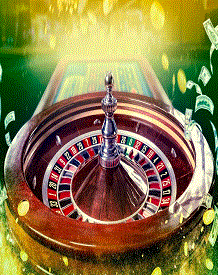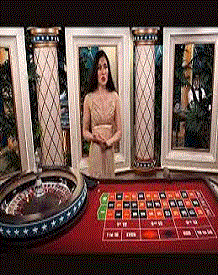Main Menu
The History of Roulette: How It All Began
It is considered to be a highly popular casino game provided by both virtual and conventional gambling establishments and owing to its status in this regard, may actually be considered a casino staple.
Its name is the French word for 'little wheel', and it also exists in several variants with varieties such as American, European and French numbering among the most widely played varieties.
But what is the story behind the history of roulette and how did this game of chance and casino favorite come to be?
French Origins

Although the history of roulette is disputed, it is commonly believed to have French origins with the 17th century physicist Blaise Pascal being credited for its invention.
The scientist originally set out to create a perpetual motion machine but instead stumbled upon what would become a key staple in the gambling sector and a highly popular table game among wagering fans all over the globe.
By the late 18th century, roulette was known in the French capital where it is believed to have featured two sets of zeros: a single and a double.
However, by the mid-19th century, the double zero was removed while the single was allowed to remain in order to reduce the house edge and increase its appeal to clients who enjoyed visiting gambling establishments.
Growth on a Global Scale

Roulette soon found its way across the Atlantic to America where it flourished in New Orleans, having been introduced by the French.
Early gambling establishment proprietors provided a variant which came with two zeros as well as an American eagle. Considered to function as an extra zero, this feature also served to tilt things in gambling houses' favor by further raising the house edge and earned clients' ire, as a result. Owing to their clients' displeasure, operators were subsequently obliged to provide boards without it.
However, unlike the casino staple's European version, its American variant held on to the double zero through later evolutions, maintaining a higher house edge as a result.
A Modern Evolution

Through the centuries, roulette has evolved into many forms. As noted above, its most common variants are American, European and French.
Their main distinguishing features include: an extra slot containing a double zero (resulting in 38 slots in total) and therefore a higher house edge for the American version; the standard 37 slots and a lower house edge for the European version; rules such as 'La Partage' and 'En Prison' for the French version.
The advent of online casino gaming in 1996 has since resulted in new variants being made available.
Certain popular versions include: The multi-wheel variant (a European-inspired version which provides fans with the opportunity to wager on more than one outcome at a time) and the mini variant (which features the classic red and black wheel with fewer numbers, a lower house edge and lower payouts as a result).
A Constantly Evolving Game
It is worth noting that there are other variants other than those briefly mentioned above which may be played by roulette fans.
And it is highly likely that enterprising software and games developers will come up with even more versions providing fans with additional options in the future.





